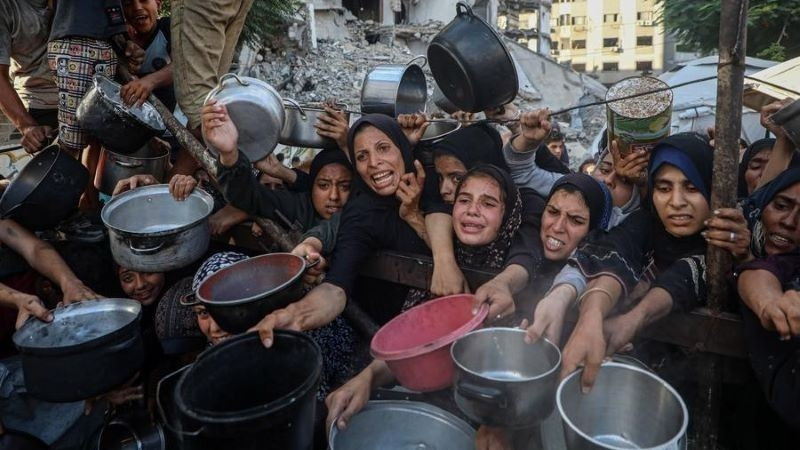On October 7, 2023, a tragic milestone for peace-loving humanity was marked when Hamas unexpectedly attacked Israel, killing more than 1,200 people and taking hundreds of hostages. Israel’s subsequent military response, aimed at “wiping out Hamas”, has devastated the Gaza Strip.
According to Gaza’s health authorities, Israel’s military campaign over the past two years has killed more than 67,000 Palestinians, including over 20,000 children, more than 10,000 women, and nearly 5,000 elderly people. Before the conflict, Gaza’s population was estimated at about 2.3 million. This means that one in every 33 people has been killed. On average, 28 children have lost their lives every day over the past two years.
Statistics also show that more than 169,000 Palestinians have been injured during this period, around one in fourteen of the population. Nearly 42,000 people in Gaza continue to struggle with their wounds. Meanwhile, Israeli strikes on medical facilities have forced 25 of Gaza’s 38 hospitals to cease operations. More than half a million people are facing famine, and at least 1.9 million have been displaced across Gaza as a result of the war.
While the figures cannot fully convey the suffering endured by the people, they do offer a glimpse into the scale of the catastrophe in this strip of land in the Middle East. Over the past two years, Tel Aviv’s full-scale military operations have also disrupted Israel’s own security, political, social and economic situation. On the battlefield, besides Hamas, Israel has had to contend with Hezbollah in Lebanon, the Houthis from Yemen, and direct tensions with Iran.
Beyond human losses, Israel has also suffered deep social and economic impacts as defence spending has soared. Ordinary life has been severely affected, with a constant sense of insecurity. Politically, domestic parties have been trading blame over the burdens of war, and protests have called for an end to the conflict. Internationally, several European countries, including some of Israel’s traditional allies, have urged Tel Aviv to comply with international law.
Two years have been a painfully long time, with suffering far beyond what many families in Gaza can endure. Mediation efforts by Egypt, Qatar, Turkey and even the United Nations have repeatedly raised hopes, only to end in deadlock. As the conflict enters its third year, hope has once again been ignited, with President Donald Trump’s 20-point Gaza peace plan, proposed in late September 2025, receiving positive responses from the parties concerned.
Expressing deep gratitude for the efforts of the international community and the United States to end the war, Hamas has declared its readiness to sign a ceasefire agreement and release all Israeli hostages, provided there is a commitment to a permanent end to the conflict in the Gaza Strip. In Egypt, on the sidelines of indirect talks between Hamas and Israel mediated by Egypt and Qatar, Hamas has emphasised its participation with the goal of ending the conflict, as well as its aspirations for stability, freedom, self-determination, and the establishment of an independent Palestinian state.
The US’s 20-point proposal has been described as a glimmer of hope amid the ruins. The international community has expressed strong resolve to seize this precious opportunity to end the conflict in Gaza. Qatar’s Ministry of Foreign Affairs has confirmed that its Prime Minister cum Foreign Minister is participating in the talks. Turkey has also sent a delegation led by its intelligence chief. The US special envoy to the Middle East is remaining in Egypt until an agreement is reached. Meanwhile, leaders of many countries continue to hold discussions and push for a ceasefire deal in Gaza.
Affirming that there is now “a real chance” for a peace agreement, President Donald Trump has stated that Washington will do everything possible to ensure that all parties comply with the deal once it is signed. However, challenges are anticipated, as the US Secretary of State has noted that much remains to be done before the war in Gaza can come to an end.
The most crucial issue is addressing Hamas’s condition that the international community, especially the United States and other guarantor nations, must provide genuine assurances to ensure Israel’s full withdrawal and prevent a resumption of hostilities after the hostages are released.
If this key issue remains unresolved, the prospects for peace in Gaza will continue to be fragile.
















